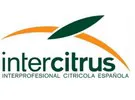 "The session of the Standing Committee on Plants, Animals, Food and Feed (ScoPAFF) next Friday, May 20th, should support the modification of the European regulation to start applying the cold treatment to oranges imported from countries suffering from ‘False codling moth’" according to statement from Intercitrus .
"The session of the Standing Committee on Plants, Animals, Food and Feed (ScoPAFF) next Friday, May 20th, should support the modification of the European regulation to start applying the cold treatment to oranges imported from countries suffering from ‘False codling moth’" according to statement from Intercitrus .
"After having passed the period of public exposure both in the EU and in the World Trade Organization (WTO), the measure should now be ratified for its immediate publication in the OJEU and thus become effective. This is the only way the commitment transmitted by the Commissioner for Health and Food Safety, Stella Kyriakides, is fulfilled, who advanced in writing it would begin to be implemented “before the start of the new commercial season” (of imports in the southern hemisphere). And the truth is that, if there has not been any arrival already, it is known that there are ships loaded with oranges in South Africa that will leave for Europe in a matter of days. If the measure is delayed even further, the Commission itself could be held liable because, in fact and at its request, the European Food Safety Authority (EFSA) already warned last summer there is a high risk the pest will settle in the EU territory and therefore recommended applying this treatment."
Intercitrus, urges the Commission to impose its criteria and assert EFSA’s scientific studies, as well as the requirements of the European regulation itself, which in this case requires “total absence of pest" in imports. Only the cold treatment can ensure such a thing to 99.9968% (according to the EFSA). Based on such arguments and the position shown by the ScoPAFF on February 1st, the Commission should propose and approve the implementation of the cold treatment.
